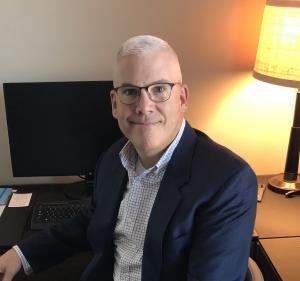In my last blog post, I noted with sadness that many independent schools and small colleges are facing unprecedented challenges in 2019, forcing some institutions to face the prospect of mergers or even closure. Senior leaders, including board members, must start to think about – and actively discuss – these possibilities, even for those institutions that may consider themselves to be financially healthy. [1] The education industry (both secondary and higher education) is changing much more rapidly than ever before and macro-economic factors are having a far greater impact than in past decades. Board service now means something very different than it has in the past.
A New Era of Board Responsibility
Noting this, I realized that many boards need additional and different training given the challenging and turbulent waters ahead for the industry. That prompted me to think more deeply about the types of training boards now need and the extraordinary duties and responsibilities that lay on a board members’ shoulders.
So, I decided to ask a few professional colleagues their thoughts about board governance as we head into an era when many schools may have to radically change their entire business model and, thus, the governance structure supporting that model. In sum, boards must be trained to deal with a significantly new and different eco-system, as well as learn to be disruptive and generative in their actions. While all boards have a duty to be prudent fiduciary stewards and strategic thinkers, learning how to be truly generative and disruptive in an industry far removed from their own may not be intuitive. [2]
I asked colleagues at the boutique and well-regarded consulting firm Cambridge Hill Partners [3] what they are seeing in terms of the need for board training. They responded that in their many years working with boards ranging across a variety of institutions, “the most common challenge is positioning the board to develop and continually revisit the ‘long view.’ Because boards are often focused on the current state and their fiduciary responsibilities, they can sometimes be disconnected from the organization and its external environment, leaving the board less prepared to play a role in shaping the school’s future.”
They also shared that, “within the context of a shared sense of purpose or mission, it is important to educate boards about their governance roles and stewardship responsibilities.” What came to mind for me was redefining the concept of “fiduciary duty” with a new set of stewardship responsibilities for boards, which extend beyond simply ensuring that proper internal controls exist, setting annual tuition, or keeping an eye on the growing discount rate.
Meeting the New Challenges: What Should Boards Do?
So, what are the new duties of board members in 2019 and beyond? Boards have a “duty of inquiry” and “duty to investigate” that extend much deeper than what previously may have been considered appropriate and prudent.
Boards should:
- Demand greater levels of reporting and communication from senior leaders related to expense management, vendor relationships, tuition aging, long-term planning and position control.
- Require continuous and detailed reporting about risks.
- Have in place a written, formal enterprise risk management process and system that is tied to the budget process and both short- and long-term planning.
- Demand a 5-10-year technology plan, 10-year deferred maintenance assessment and plan, and 3-, 5- and 10-year tuition and financial aid plans.
- Request a robust “look back” analysis that tracks revenues and expenses (administrative and academic) compared to CPI (consumer price index) for the past 20 years; it is hard to assess where you are going if you don’t know where you have been.
- Understand operational gaps and risks, as well as the external competitive market and key ratios like structural deficit ratio (operating and non-operating).
- Insist upon a formal SWOT (strengths, weaknesses, opportunities, threats) analysis that is updated annually and accounts for both micro- and macro-economic factors, including household income trends nationally and in its geo-market.
- Require a marketing and “brand strength” analysis every 2-3 years to understand how competitors and potential applicants view their institution.
- Insist upon quarterly “claims reports” at every board meeting that outline current and potential insurance, legal and employee-relations claims, which can be costly, especially if coverage is lacking.
- Ask management to provide an annual schedule for routine and systematic reporting, to include all forms insurance coverage (and D&O coverage), legal updates, economic trend updates, and performance against strategic KPIs and KPHIs that have been established with senior leadership.
- Ensure in a transparent way that the entire campus community understands a school’s current and future fiscal health status and the risks it may face in the future.
- Consider a range of other data and information sets that will allow them, as stewards, to properly execute their duties of inquiry and investigation.
Boards and management have a shared duty to outline plans for business continuity, as well as the operational and communications plans to put in place for potential extreme measures that may include merging or closing. Board service is an honor and can be empowering and satisfying, but it is also a serious job in a challenging economic time for schools.
In my view, the failure of a board to implement these types of plans and understand the financial risks at play is negligent. No employee should be surprised by a school’s decision to close, since that decision has profound impacts on every faculty and staff member, both personally and professionally. Regrettably, this has occurred in our industry and could be avoided. [4]
The Bottom Line for Boards
What should boards do to ensure proper training to satisfy their ethical and legal duties? First, engage in a thorough, unbiased and external self-assessment and gap analysis, with a view towards building a two-level training plan, one for the board and one for the board and senior management. Second, draft a project plan for monthly training and deliverables/reports, both to and from senior management. Finally, assign ownership of that plan to at least two individuals, e.g., a board member, an external and unbiased professional, or a senior leader, to ensure compliance.
The “board” should not own the plan alone. By supporting their duties with a clear project plan, a board can ensure accountability, continuous improvement and a continued focus on a school’s health – both now and in the future.
 About David Hanson
About David Hanson
Prior to founding Winthrop & Associates, LLC, David spent 20 years serving academic and non-profit organizations, including serving in dual positions (chief financial officer and chief risk officer) for Phillips Exeter Academy, where he had responsibility for a $100M annual budget and all operating functions, as well as risk management. Prior to Exeter, David was the vice president (chief financial officer) and then senior vice president (chief operating officer) for Virginia Commonwealth University. He began his career in academic leadership at Emory University, where he spent ten years in a variety of roles leading to his appointment to dual positions as associate vice president for administration and special assistant to the executive vice president. David began his professional career practicing law.
David holds a bachelor’s degree in marketing, a Juris Doctorate (with highest honors), two master’s degrees (education and business), and a doctorate in higher education management (focused on financial resource allocation and governance). David is a member of Beta Gamma Sigma and Phi Kappa Phi academic honor societies and is a double alumnus of the Fulbright Specialist Program, having served institutions in Pakistan and Scotland.
David can be reached via email at david@winthropassociates.com.
[1] Are Liberal Arts Colleges Doomed? The Cautionary Tale of Hampshire College and the Broken Business Model of American Higher Education, by Eliza Gray, Washington Post online (October 21, 2019).
[2] See Chait, R. P., Ryan, W. P., & Taylor, B. E. (2005). Governance as leadership: Reframing the work of nonprofit boards. Hoboken, NJ: John Wiley & Sons, Inc.
[3] The firm’s principals, Jenn Desjarlais and Ed Hudner, may be reached via www.cambridgehill.com.
[4] See “America’s Only Jewish Boarding School Closes. Why?,” by Jeffrey Salkin (www.religiousnews.com, June 18, 2019).
Missed David’s last blog post? Read it here.
Assessing the Health of Your School: Three Intersecting Lenses and KPHIs


